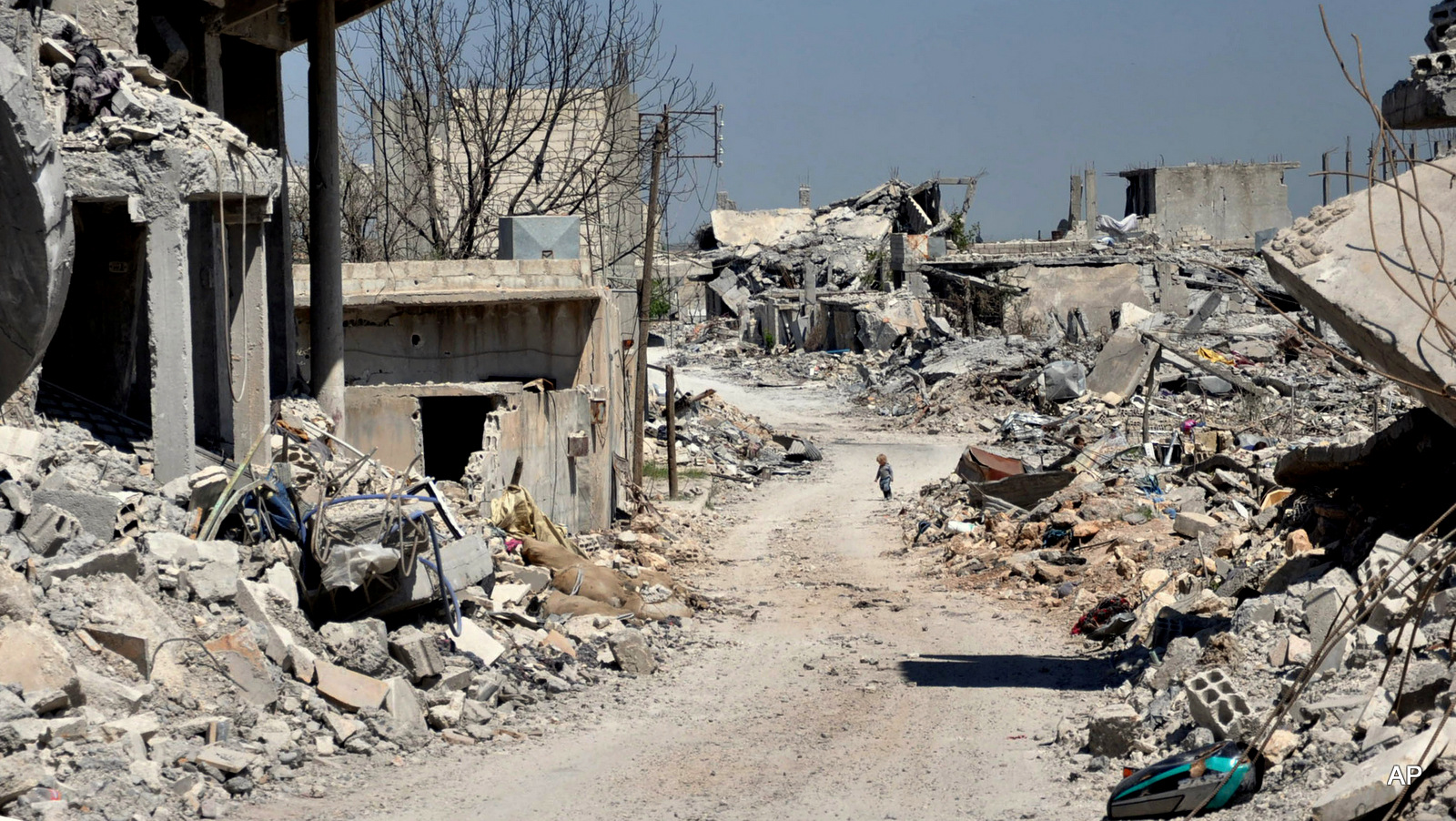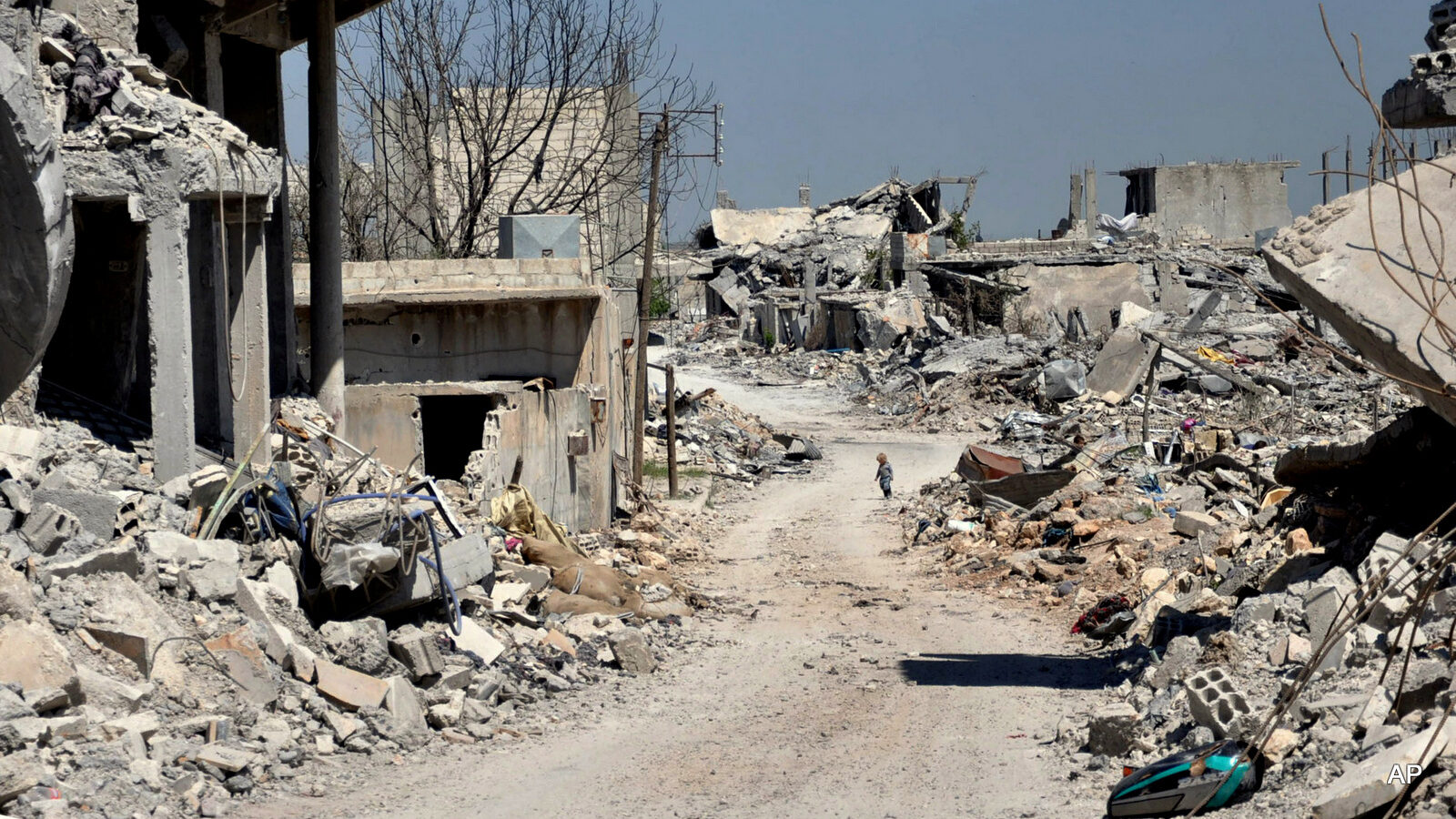
State Department spokesperson John Kirby is raising eyebrows after he released a recap of 2015 «success stories» in which he credits the United States for bringing «peace» and «security» to Syria and «stepping up» to help the country’s people at a difficult time.
«The United States and many members of the international community have stepped up to aid the Syrian people during their time of need,» wrote Kirby in his laudatory year-in-review released late last week. He went on to claim that «the United States has led the world in humanitarian aid contributions since the crisis began in 2011.»
«Led by Secretary Kerry, the United States also continues to push for a political transition in Syria, and under his stewardship, in December, the [United Nations] Security Council passed a U.S.-sponsored resolution that puts forward a roadmap that will facilitate a transition within Syria to a credible, inclusive, nonsectarian government that is responsive to the needs of the Syrian people,» the report continued.
Using the hashtag #2015in5words to highlight last year’s wins, Kirby boasted: «Bringing Peace, Security to Syria.»
Kirby’s claims of victory did not go unnoticed, with Foreign Policy reporter David Francis writing on Monday: «When it comes to Syria, ‘peace’ and ‘security’ might not be the best choice to describe what the United States delivered there in 2015.»
And indeed, a roundup of empirical evidence paints a far more bleak picture.
The United Nations Security Council reported in August that the Syrian conflict has now killed 250,000 people and displaced 12 million. According to a report released by the UN’s Relief and Works Agency in March, more than 80 percent of Syrians were living in poverty in 2014.
What’s more, despite the role of U.S. military intervention in fueling the rise of ISIS and conflict in Syria and Iraq, the American humanitarian response is severely lagging. The United States has admitted just 1,854 Syrian refugees since 2012, and according to the administration of President Barack Obama, 10,000 will be resettled next fiscal year.
This compares with 2.1 million Syrian refugees registered by the UN in Egypt, Iraq, Jordan, and Lebanon; 1.9 million Syrians registered by Turkey; and nearly 30,000 in North Africa. All of these numbers are likely low, as many refugees do not register.
Further, these numbers fall well below calls for the U.S. to resettle at least 100,000 Syrian refugees in the coming year, with some demanding open borders at a time of dramatic human displacement.
In addition, many have argued that U.S. aid donations are dismally inadequate, given the country’s status as the biggest economy in the world.
While aid falls short, U.S. intervention continues to escalate—despite warnings that there is no American military solution.
According to the calculations of journalist Chris Woods, November 2015 «saw the greatest number of Coalition actions yet reported in the 16-month war,» with the U.S. and allies conducting 232 bombings in Syria, as well as 529 in Iraq. And earlier this month, the United States announced it is deploying more special operations forces to Iraq, where they will be given license to operate unilaterally in neighboring Syria.
Meanwhile, a report released by Amnesty International earlier this month found that ISIS has formed a formidable arsenal, in part thanks to large stockpiles of U.S. weapons seized from Iraqi forces and Syrian opposition.
Kirby’s declaration of «success» in Syria was not, however, the only controversial claim in his annual roundup. Also included under the hashtag #2015in5words were «Protecting Arctic Climate and Communities» and «Open Door to Free Trade.»


